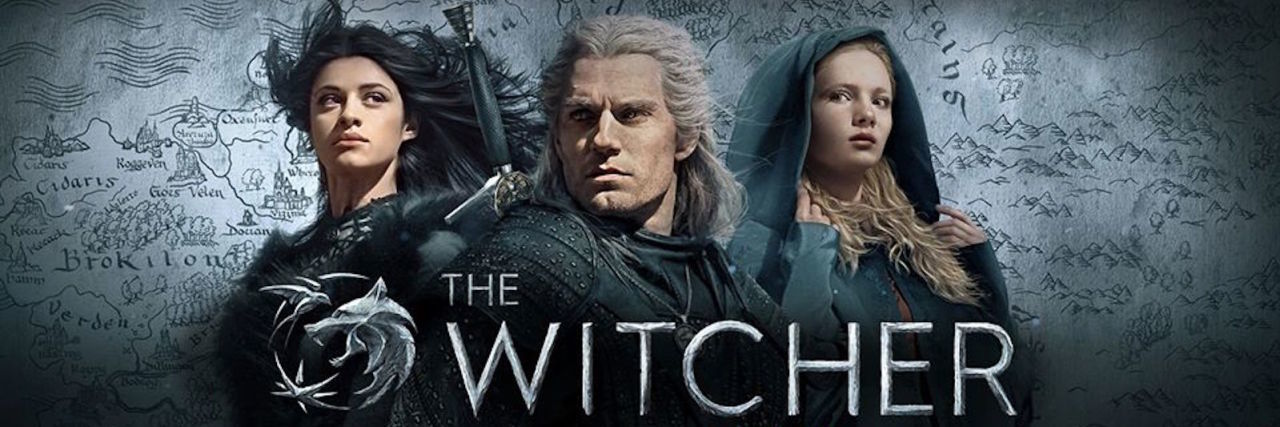People Are Warning Each Other About an Ableist Plot Line in Netflix's 'The Witcher'
Editor's Note
The following contains spoilers for the shows “The Witcher” and “Game of Thrones.”
Netflix’s new fantasy series, “The Witcher,” has generally been well-received (it has a 92% audience approval rating on Rotten Tomatoes), but some have taken issue with an ableist plotline in the show. If you are planning to watch the new series, please be aware there are spoilers below.
Yennefer (played by Anya Chalotra) is a disabled character in the series born with a hunchback. Throughout her childhood, she is abused at the hands of her father because of her disability. During the third episode of season one, Yennefer (now an adult), seeks out the help of a magical enchanter to remove her hunchback. At this point, Yennefer is transformed into a non-disabled woman, and later becomes a powerful sorceress.
Though the message was likely intended to be empowering, this plotline actually reinforces a tired and harmful notion that in order to be successful, people must “rise above” or “erase” their physical disabilities in order to succeed. Vox writer Alex Abad-Santos commented on the problematic nature of her transformation:
At some point, you get the sense that Yennefer will represent a lesson about how greatness can come from the people, women especially, who we overlook the most. Which is a fine lesson to teach, except that Yennefer is almost immediately transformed into a hot, booby witch.
In addition to this plotline, Yennefer is played by a non-disabled actor — a common casting practice in the entertainment industry. According to the Ruderman Family Foundation, only 2% of TV characters have disabilities, and of those, 95% are played by non-disabled actors.
Social media users have also weighed in on ableism in “The Witcher,” warning those who may feel vulnerable to ableist triggers:
i’m not saying that difficult content cannot be explored but it’s…ableist. I was struck with emotion, as someone who spent childhood being bullied, not considered pretty, to become “beautiful” in adulthood but I doubt that offers the same catharsis to disabled folks.
— Yennefer of Vengabus (@ellementalevil) December 21, 2019
I was troubled by the use of physical disability as a backstory (shorthand for being abject), and by fertility as a singular motive.
Also: STOP TALKING ABOUT DESTINY. Just no. #thewitcher
— Damon Young (@damonayoung) December 23, 2019
Though “The Witcher” doesn’t do a great job of empowering people with disabilities, there are some shows that have made an effort to “get it right” when it comes to disability representation. One such show (in the same fantasy genre, no less) is “Game of Thrones.”
The Mighty’s disability editor, Karin Willison, wrote about the role of disability representation in “Game of Thrones,” in her piece, “In the ‘Game of Thrones’ Finale, Disabled People Were the Real Winners.” (Editor’s Note: The following contains spoilers for the “Game of Thrones” Finale.)
In the first season, Tyrion says, ‘I have a tender spot in my heart for cripples, bastards and broken things.’ Despite all of its brutality and horror, ‘Game of Thrones’ ultimately does too. In Westeros, a ‘broken’ man with a spinal cord injury becomes King, an ‘imp’ with dwarfism becomes his most trusted advisor, and an abuse survivor with PTSD becomes Queen. The series proved that people with disabilities can be complex, multi-dimensional characters and that a disabled actor can become a star. Whatever you may think about the final season, one thing is clear: in “Game of Thrones,” disabled people rule. And long may they reign.
If you’re someone who’s sensitive to ableist depictions in pop culture, it’s OK to skip “The Witcher.” Or, if you still want to see it, it might be helpful to watch it with someone you trust.
Stay safe and take care of yourself. Your well-being is more important than being “in the know” about a popular show.
Header image via “The Witcher Netflix” Facebook page

